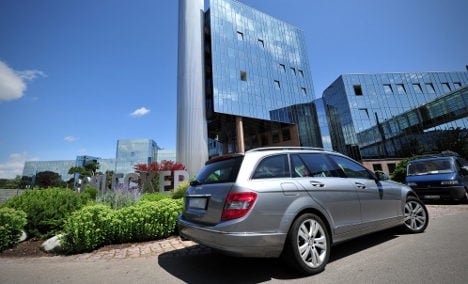“Under suspicion of embezzlement and delaying insolvency proceedings connected to the Schlecker group, investigators have searched 18 flats and four business premises in a number of regional states,” said a joint statement by prosecutors in Stuttgart and police in Baden-Württemberg.
The raids were carried out by 160 police officers and nine prosecutors as part of a probe targeting around 14 suspects, the statement said.
Schlecker – which stocked a wide variety of goods from baby food to shampoo to washing-up liquid but not medicine – closed its doors last month after a months-long battle for survival. Nearly 25,000 jobs were lost.
Schlecker filed for protection from its creditors in January, having already in previous months closed nearly 3,000 stores and laid off more than 12,000 people.
In a bid to turn the company around, the court-appointed administrators originally said the workforce would be reduced further and the number of stores cut.
But further attempts to find investors for a workable rescue of the family-owned company also failed and administrators announced at the start of June that creditors were unable to agree on a solution to maintain the then remaining 2,800 shops and 13,000 employees.
The Verdi service industry trade union said Schlecker was the biggest bankruptcy of the post-war period.
While the bankrupt company’s remaining 13,200 workers have already had to report to the unemployment office, massive questions remain unanswered about what company founder Anton Schlecker has done with his money.
The Bild newspaper reported at the end of June that Anton Schlecker had signed over ownership of real estate with a value of several million euros to his wife and two children just months before filing for bankruptcy. The paper based its reporting on contracts and land registry information.
AFP/DADP/The Local/jlb



 Please whitelist us to continue reading.
Please whitelist us to continue reading.
Member comments